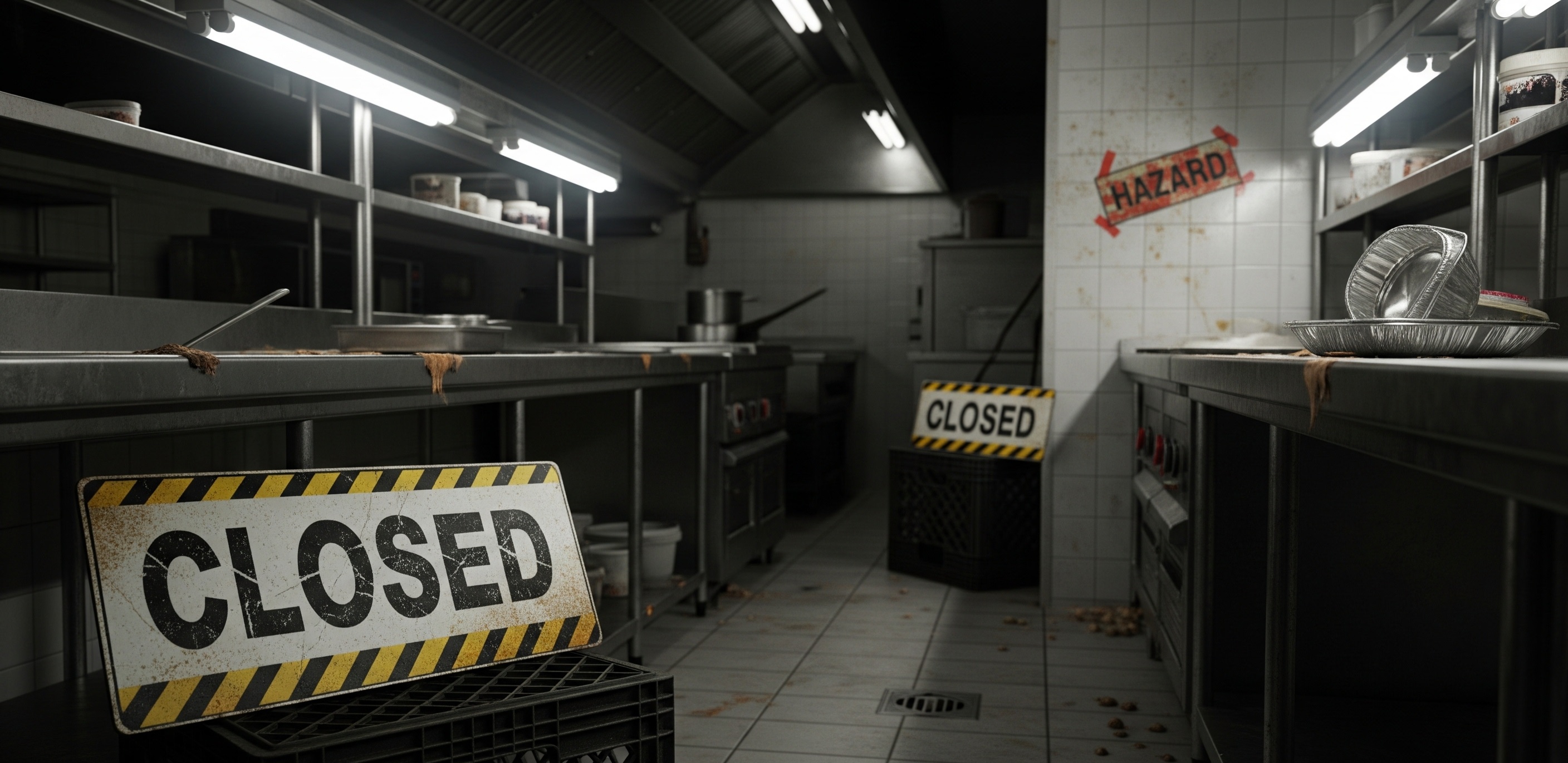
As of July 26, 2025, multiple restaurants across South Florida have been temporarily closed by the Florida Department of Business and Professional Regulation (DBPR) following surprise inspections that revealed severe rodent infestations. The closures, which affected locations in Miami, Broward, and Palm Beach counties, were carried out after inspectors found evidence of live rodents, droppings, nesting materials, and contaminated food preparation surfaces.
The restaurants rodent issues South Florida health enforcement push is part of a statewide initiative to intensify random inspections, especially during the high summer season when heat and waste increase pest activity. Several establishments, including a fast-casual eatery near Little Havana and a sushi restaurant in Fort Lauderdale, were found to have rodent activity near kitchen areas, dry storage rooms, and customer dining spaces.
In one Miami-Dade location, inspectors observed multiple live rodents running beneath kitchen equipment and uncovered more than 100 droppings scattered throughout the premises. Other violations included uncleaned grease buildup, open food containers stored on the floor, and improperly sealed garbage bins that may have attracted pests.
Restaurants are required by state law to comply with strict hygiene and safety protocols under Chapter 509 of the Florida Statutes. The DBPR mandates immediate closure when violations pose a "severe and immediate threat" to public health. These closures are enforced until facilities complete thorough pest control treatments, deep sanitation, and pass a follow-up inspection.
The news of restaurants rodent issues South Florida has left many patrons alarmed, especially as some of the closed venues had previously high ratings on review platforms like Yelp and Google. Health officials emphasize that appearances can be deceiving, and even trendy restaurants are not immune from infestations if cleanliness lapses occur.
Local health expert Dr. Ana Castillo explains that rodents can transmit diseases such as salmonella, hantavirus, and leptospirosis. “Even a small presence of droppings near prep surfaces or food storage can introduce harmful bacteria that cause illness,” she said. “Customers often assume a clean-looking dining room reflects safe practices in the kitchen but that’s not always the case.”
Public reaction has been swift. Several diners have taken to social media to share images of inspection reports and voice their disappointment. Meanwhile, community health advocates are encouraging patrons to check official restaurant inspection reports on the Florida DBPR website before dining out.
The restaurant owners affected have largely cooperated with the enforcement orders. Pest control companies were seen at several sites within hours of the shutdowns. Some establishments have already undergone reinspection and reopened, while others remain closed pending sanitation verification.
This week’s events highlight the importance of transparency in the food service industry. The restaurants rodent issues South Florida reports also serve as a wake-up call to the hospitality sector, reminding operators that rodent control must be proactive and ongoing not reactive to complaints or violations.
To help consumers make safer dining choices, health authorities recommend a few key signs to watch for:
Restaurants can protect themselves by scheduling regular pest control inspections, conducting nightly sanitation routines, and training staff to report any signs of infestation. Compliance not only prevents closure it protects public trust.
With tourism at a seasonal high in Miami and surrounding counties, maintaining public confidence in food safety is essential. The DBPR says it will continue unannounced inspections throughout August, particularly in areas with high tourist density or repeat violations.
The affected restaurants will be listed publicly in the department’s July inspection database, which updates weekly. Consumers are encouraged to review the most recent reports before making reservations or placing takeout orders.
In response to the growing concern, the Miami-Dade Hospitality Alliance has announced a free training webinar for restaurant operators titled “Pest Prevention and Compliance,” to be held August 2 via Zoom. The goal is to educate owners and managers on best practices for avoiding health violations and protecting customers.
Ultimately, the restaurants rodent issues South Florida crackdown is not just about citations it's about public safety. As the food service industry continues to rebound from the post-pandemic economy, health and hygiene must remain a non-negotiable priority.